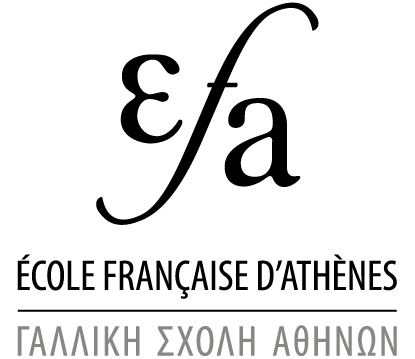
Le réseau de recherche international HAEMUS – du nom antique de la chaîne des Balkans – propose de rassembler les chercheurs en archéologie et histoire qui travaillent sur le territoire de la péninsule balkanique et/ou sur les contrées environnantes aux époques romaine tardive et proto-byzantine. Ce réseau scientifique est conçu autour des fouilles archéologiques en cours et d’autres programmes de recherche dans la région. Des projets similaires ont déjà existé, notamment en France, mais c’est la première fois que l’ensemble des Balkans, d’est en ouest et du nord au sud, est envisagé du point de vue des frontières administratives antiques, entre le IIIe et le VIIIe siècle, plutôt que de celui des frontières contemporaines. Afin de mettre adéquatement en lumière le phénomène de la transition historique de l’Antiquité romaine au Moyen Âge, le réseau n’hésite cependant pas à dépasser les repères temporels et le cadre spatial établis.
Pour sa phase de mise en œuvre, le réseau de recherche international HAEMUS a été porté par l’Université de Lille, le centre de recherche HALMA-UMR 8164 (Univ. Lille, CNRS, MC) et la Fondation I-SITE ULNE (également en tant qu’activité structurante du projet InclusU: The European University for Inclusiveness), en coopération avec un consortium d’autres institutions européennes de premier rang. La majorité est aujourd’hui représentée sur le comité de pilotage, dont le noyau rassemble, en plus des institutions lilloises :
- le centre de recherche AOrOc-UMR 8546 (CNRS, PSL [ENS, EPHE])
- l’Institut archéologique de l’Académie autrichienne des Sciences (ÖIA/ÖAW)
- l’Université de Vienne
- l’Institut Leibniz pour l’histoire et la culture de l’Europe orientale (GWZO)
- la Commission romano-germanique de l’Institut archéologique allemand (RGK/DAI)
- l’École française d’Athènes (EFA)
- l’École française de Rome (EFR)
- l’École italienne d’archéologie à Athènes (SAIA)
- l’Institut des sciences du patrimoine du Conseil national italien de la recherche (ISPC/CNR)
- l’Université du Kent
Le comité de pilotage est complété par un conseil scientifique regroupant des institutions académiques de haut niveau des onze pays des Balkans, auxquels s’ajoutent la Hongrie et la Turquie. Le réseau de recherche international HAEMUS a également un partenariat spécifique, en formation, en recherche et en édition avec Brepols Publishers, et est pleinement soutenu par la région Hauts-de-France.
Contact : haemus-contact@univ-lille.fr
The HAEMUS International Research Network—from the ancient name of the Balkan mountains—proposes to bring together researchers in archaeology and history working on the Balkan peninsula and/or the surrounding lands during the Late Roman and Early Byzantine periods. This scientific network is designed around ongoing archaeological excavations and other research programmes in the region. There have been similar projects before, especially in France, but this is the first time that the entirety of the Balkans, from east to west and north to south, is considered from the perspective of ancient administrative boundaries, between the 3rd and 8th centuries, rather than from contemporary borders. In order to adequately shed light on the phenomenon of the historical transition from Roman Antiquity to the Middle Ages, the network does, however, not hesitate to look beyond established temporal benchmarks and the spatial framework.
For its implementation phase, the network was mainly supported by the University of Lille, the HALMA-UMR 8164 research centre (Univ. Lille, CNRS, MC) and the I-SITE ULNE Foundation (also as a structuring activity of the InclusU: The European University for Inclusiveness project), in cooperation with a consortium of other high-ranking European institutions. Most of them is today represented on the Steering Committee, its core bringing together, in addition to institutions from Lille:
- The AOrOc-UMR 8546 (CNRS, PSL [ENS, EPHE]) research centre
- The Archaeological Institute of the Austrian Academy of Sciences (ÖIA/ÖAW)
- The University of Vienna
- The Leibniz Institute for History and Culture of Eastern Europe (GWZO)
- The Roman-German Commission of the German Archaeological Institute (RGK/DAI)
- The École française d’Athènes (EFA)
- The École française de Rome (EFR)
- The Italian School of Archaeology at Athens (SAIA)
- The Institute of Heritage Science of the Italian National Research Council (ISPC/CNR)
- The University of Kent
The Steering Committee is supplemented by a Scientific Board gathering representative from top-level academic and research institutions from all the eleven Balkan countries, as well as from Hungary and Turkey. The HAEMUS International Research Network also has a specific partnership, in training, research and publishing with Brepols Publishers, and is fully supported by the Hauts-de-France region.
Contact: haemus-contact@univ-lille.fr
